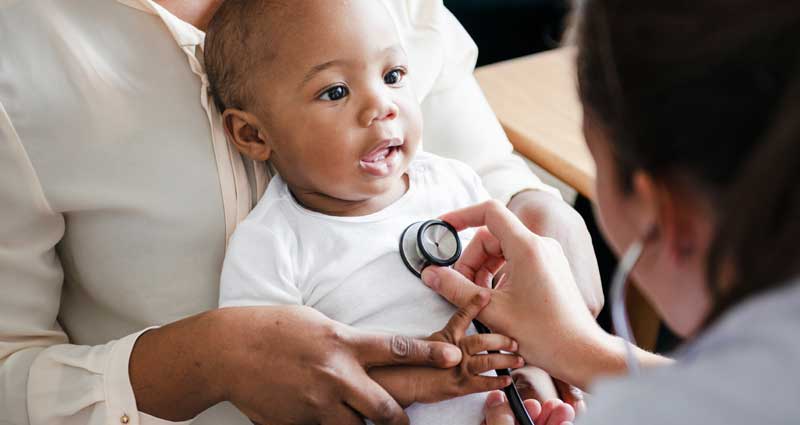Vaccination is the best way to reduce the negative impacts of the COVID-19 pandemic in all age groups. Babies and younger children are now eligible to get protected with the emergency use authorization of two vaccines.
Donna Zappi Fox, MD, Board Certified pediatrician with Our Lady of Lourdes Children’s Health, shares advice for parents of young children about the COVID-19 vaccines now available and the benefits of choosing to vaccinate.
Differences Between the Approved Vaccines
The Pfizer-BioNTech vaccine requires three doses for children ages 6 months to 4 years. Each dose is one-tenth the size of the adult dose. The first two shots are given 21 days apart, and the third dose is given eight weeks later.
The Moderna vaccine requires two doses for children ages 6 months to 5 years, given four weeks apart. Each dose is one-quarter the size of the adult dose.
Safe and Effective
The main goal of all the COVID-19 vaccines is to reduce deaths, hospital admissions and ICU ventilator treatments. All have been shown to be very effective at meeting that goal. As far as preventing young children from catching COVID at all, these vaccines’ efficacy is between 40% and 50%.
Vaccine Side Effects
Side effects of the COVID-19 vaccines are similar to those seen with other vaccines that babies and kids receive regularly throughout childhood, mainly fever, fussiness, and possibly swollen lymph nodes under the arm or in the groin, depending on whether the shot was given in the arm or leg. Reactions like these are a sign that the body’s immune system is responding to the vaccine.
While it’s not fun to see your child fussy, running fever or having tender areas, those side effects are so much better than what can happen if your child gets very severe COVID disease.
Avoiding Severe Disease
Many kids who get COVID-19 will have a mild course of the disease, but ANY child can be the next one to have a severe, terrible case. We can’t predict which baby or child who gets sick will be the one in the ICU on the ventilator, and vaccines prevent such an outcome.
Typical COVID-19 symptoms for young children include runny nose, cough, fever, diarrhea, upset stomach and sometimes breathing difficulties. Some babies with mild cases have wheezing and need breathing treatments even if not admitted to the hospital.
No child has died from receiving a COVID-19 vaccine, but children have died from this terrible disease. Vaccination can protect young children from the horrors of what this disease can do.
Protecting Others
While babies and children might have milder courses of the disease, they are in contact with other people who may become infected and get much sicker, such as babysitters, grandparents and teachers.
Death from COVID-19 is not a pleasant way to go. Preventing the spread of this disease and the deaths of others within our communities is a huge benefit of vaccinating little ones.
Development and Family Benefits
When children are sick with COVID-19 they miss daycare or school for several days while recovering and to keep others from getting sick. That impacts families by keeping parents away from work and interrupting children’s participation in normal life.
Vaccinated children will be less likely to get sick and more likely to consistently participate in the regular activities of their childhood.
More Resources
Your pediatrician is the best resource to help you make this decision. Start the conversation with your provider who will be happy to listen and answer questions.
The American Academy of Pediatrics (AAP) and the Centers for Disease Control and Prevention recommend the COVID-19 vaccine for children in this age group. There is no preference for the Moderna vaccine or the Pfizer-BioNTech vaccine. Parents are strongly encouraged to have their infants and young children vaccinated with either vaccine.
The AAP has a COVID Vaccine Checklist for Kids and other resources on its Healthy Children website.
Getting a COVID-19 vaccine is a personal choice, but it is a safe choice. Learn more in our ParentingU resource guide, Navigating COVID-19 Together.




